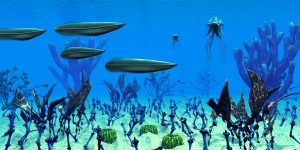Aristotle –>
aristotle, Asclepliad of Stagira
(Science: person) The son of a physician and old Asclepiad family was born at Stagira, a greek colony on the coast of Macedonia. Aristotle was called The prince of those who know.
He established a harmonious bridge between biology and medicine. He was adept in logic, botany, zoology and anatomy. Darwin called this peripatetic the worlds greatest natural scientist. He was the tutor of Alexander the Great. As knowledgeable as he was, some of his concepts were very wrong.
One of his misconceptions was spontaneous generation. He believed creatures were generated by dung hills and this idea prevailed until the 19th century when pasteur exposed its absurdity. He taught that semen was non-essential, and he supported the virgin-birth. He speculated that the seat of consciousness was in the heart, not the brain. Because he tutored young Alexander, his student supplied him with a wealth of specimens of exotic plants and animals.
He became one of the great natural scientists. When aristotle retired he bequeathed his private library and Lyceum at Athens (his private school), to theophrastus his pupil.
Lived: 384-322 B.C.
One of the greatest of the ancient Athenian philosophers; pupil of Plato; teacher of Alexander the Great (384-322 BC).A greek philosopher who was one of the first to seriously approach taxonomy, and classed species on their habitat and their general appearance.
Dictionary > Aristotle
You will also like...

Animal Water Regulation
Animals adapt to their environment in aspects of anatomy, physiology, and behavior. This tutorial will help you understa..

Vascular Plants: Ferns and Relatives
Ferns and their relatives are vascular plants, meaning they have xylem and phloem tissues. Because of the presence of va..

Arthropods
The arthropods were assumed to be the first taxon of species to possess jointed limbs and exoskeleton, exhibit more adva..

Freshwater Ecology
Freshwater ecology focuses on the relations of aquatic organisms to their freshwater habitats. There are two forms of co..

Mātauranga Māori and Science
Mātauranga Māori is the living knowledge system of the indigenous people of New Zealand, including the relationships t..

Principles of Hormonal Control Systems
Hormones are essential in the regulation of the activity of the various biological systems of the human body. The ineffi..

